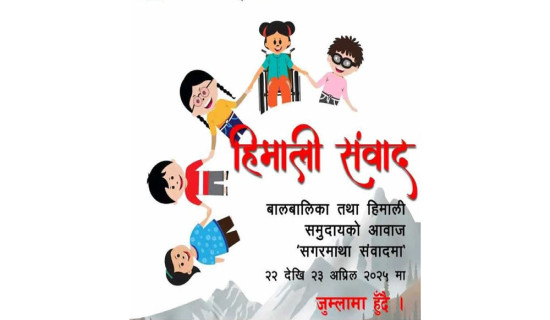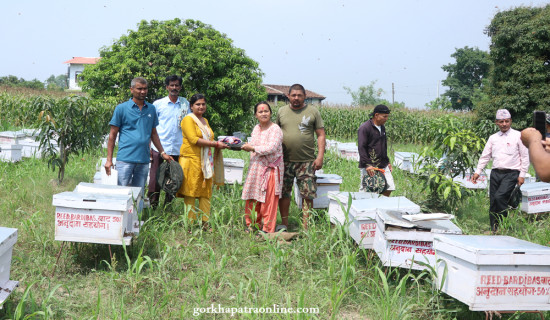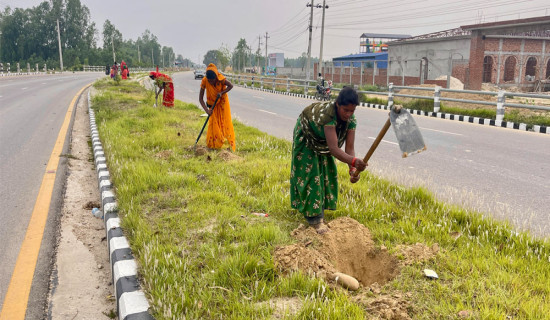- Tuesday, 22 April 2025
Buoyant Economy
Despite all odds, Nepal's economy is on the recovery track. However, it is fraught with multiple challenges that must be overcome to make it strong and sustainable. The domino effect of the COVID-19 pandemic still lingers, as seen in the closures of commercial spaces in different parts of the Kathmandu Valley. At the moment, the country's foreign reserves are satisfactory but an import- and remittance-driven economy is always susceptible to any internal and external shocks. The global economy is under a big stress with the protracted Russia-Ukraine war that pushed energy prices in developed economies to an unprecedented level. Now it is getting jittery with the tariff war waged by the incumbent US administration. Major economies are caught in an irrational spike in tariffs, whose repercussions are also felt in Nepal. Failure to end the trade impasse is sure to slow down global economic growth, with the poor and developing nations feeling the heat.
Of, late, Nepal is in another quandary- the increasing revenue shortfall. The government is struggling to meet the general expenditure, let alone the development spending. A lion's share of the budget goes to the recurrent overheads and financial management. The inability to collect the required amount of revenues further strains the public debt, an issue that has plagued all because it swallows a good deal of national outlay meant for development and social security. Sometime back, the Minister for Health and Population urged the private health institutions to allocate a certain amount of their profit to run the ongoing health insurance programme. If the economic crisis spills into the social security realm, it will hit those living on the social margins.
To resolve the impending economic troubles, the government is required to explore avenues so that it will be able to manage adequate resources. Against this backdrop, the National Planning Commission (NPC) has suggested that the government create additional fiscal space through enhanced inter-ministerial coordination so that problems generated by the poor revenue collections can be solved. This will also help expedite the development work, finish the projects in time, and disburse dues to the private sector entrepreneurs. The budgetary room facilitates the government to announce the courageous measures, such as raising spending or lowering taxes when needed, while maintaining economic stability. The NPC has incorporated its inputs into the Policy and Programmes Report prepared for the upcoming budget of Fiscal Year 2024/25. Deputy Prime Minister and Finance Minister Bishnu Prasad Paudel received it on Sunday.
The government should accord priority to the programmes that produce synergic impacts and give impetus to the implementation of the time-bound projects. The NPC's recommendations to focus on the production, productivity and job creation are timely. The tendency to create new programmes should be discouraged as they are geared to satisfy certain constituencies and fund the pork barrel projects. The finance ministry must not hesitate to revisit, merge or terminate overlapping programmes and projects as they add burden to the economy. The concerned agencies must demonstrate their prudence to strengthen and maximise the existing institutional mechanisms instead of creating new ones. Now is the time to bolster the manufacturing sector as it bolsters the economy and contributes to employment generation. The government should take the private sector into confidence and build an atmosphere conducive to the flow of foreign direct investment, which is essential to inclusive economic growth and prosperity.







-square-thumb.jpg)








